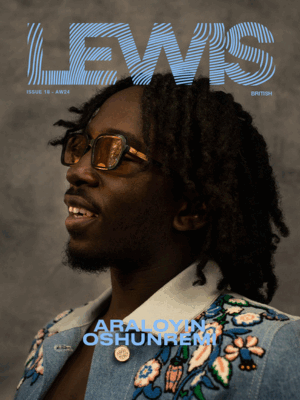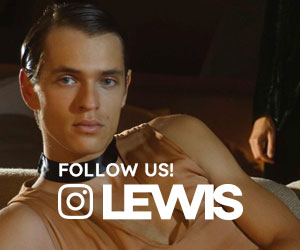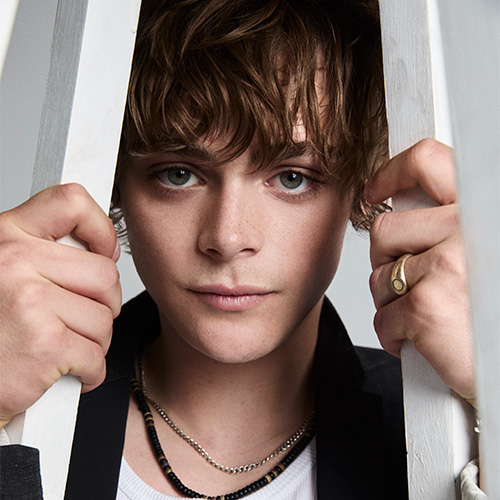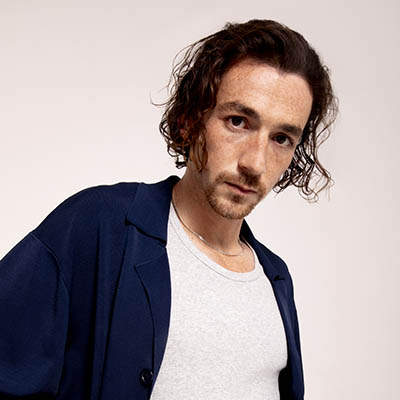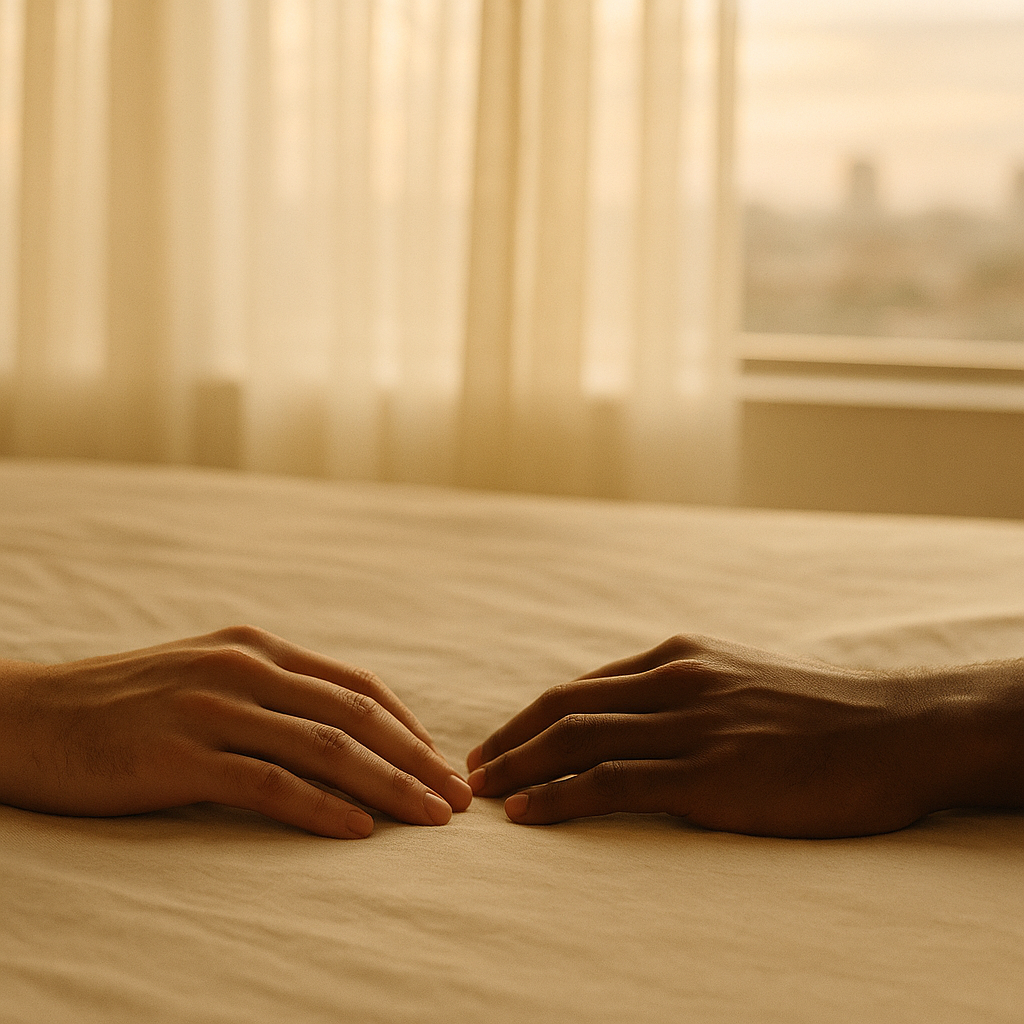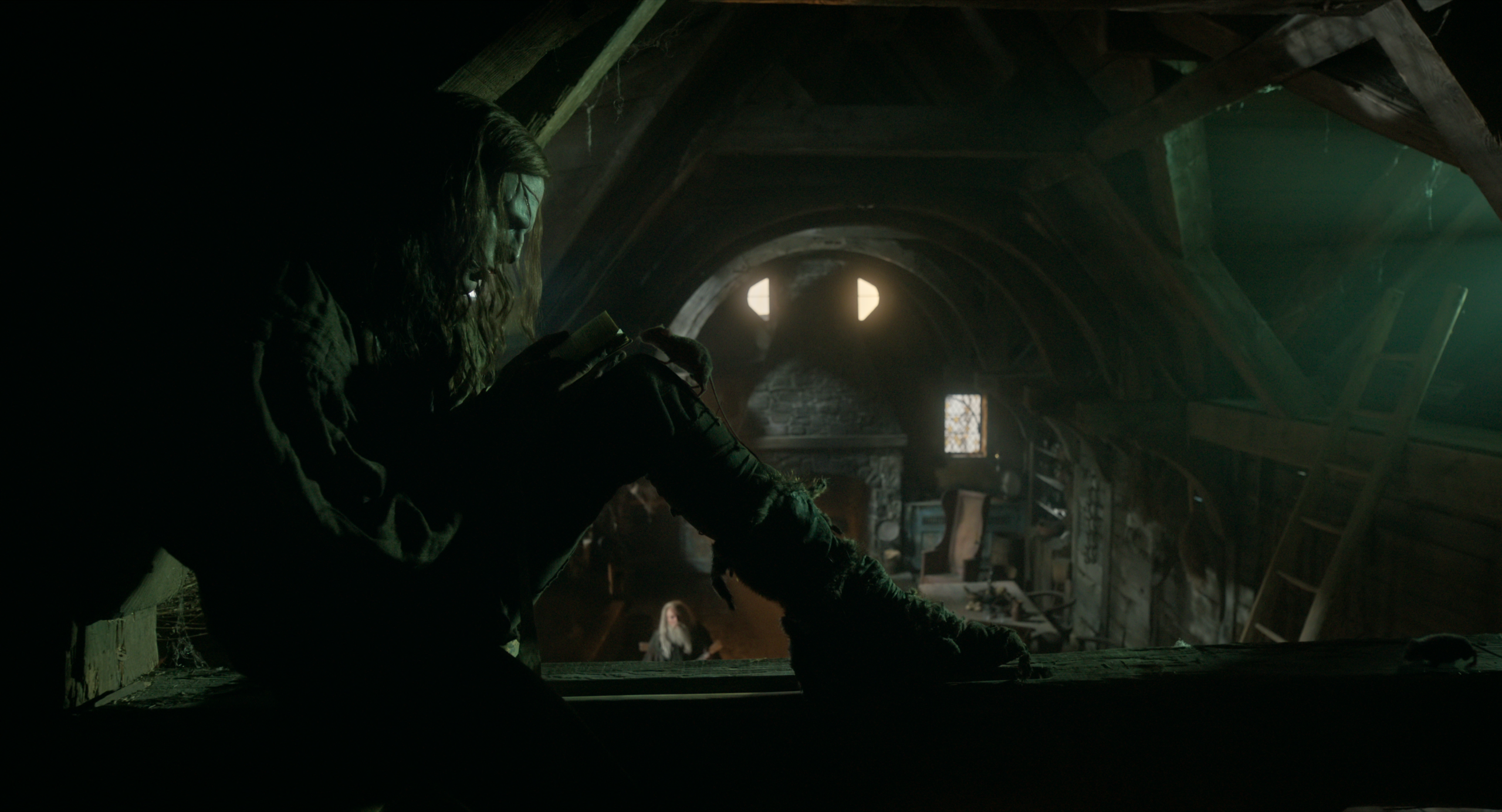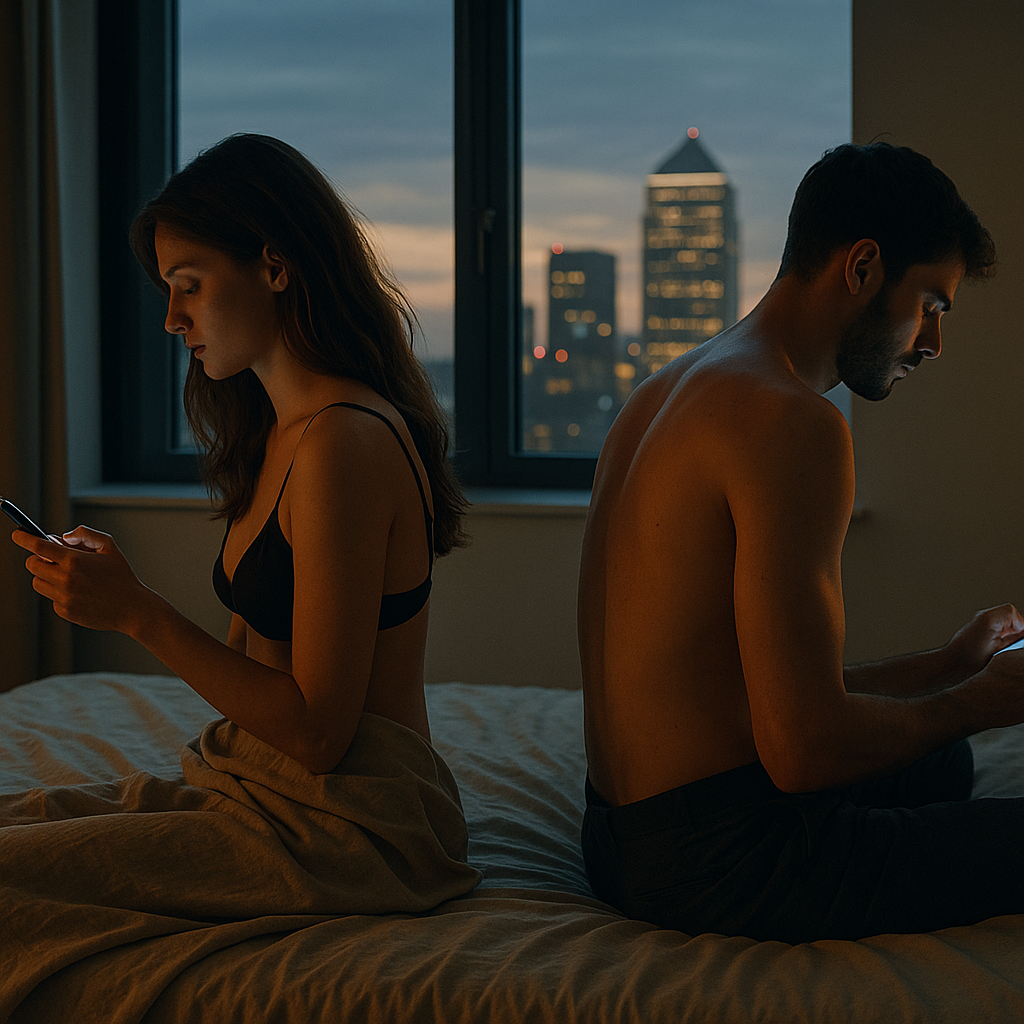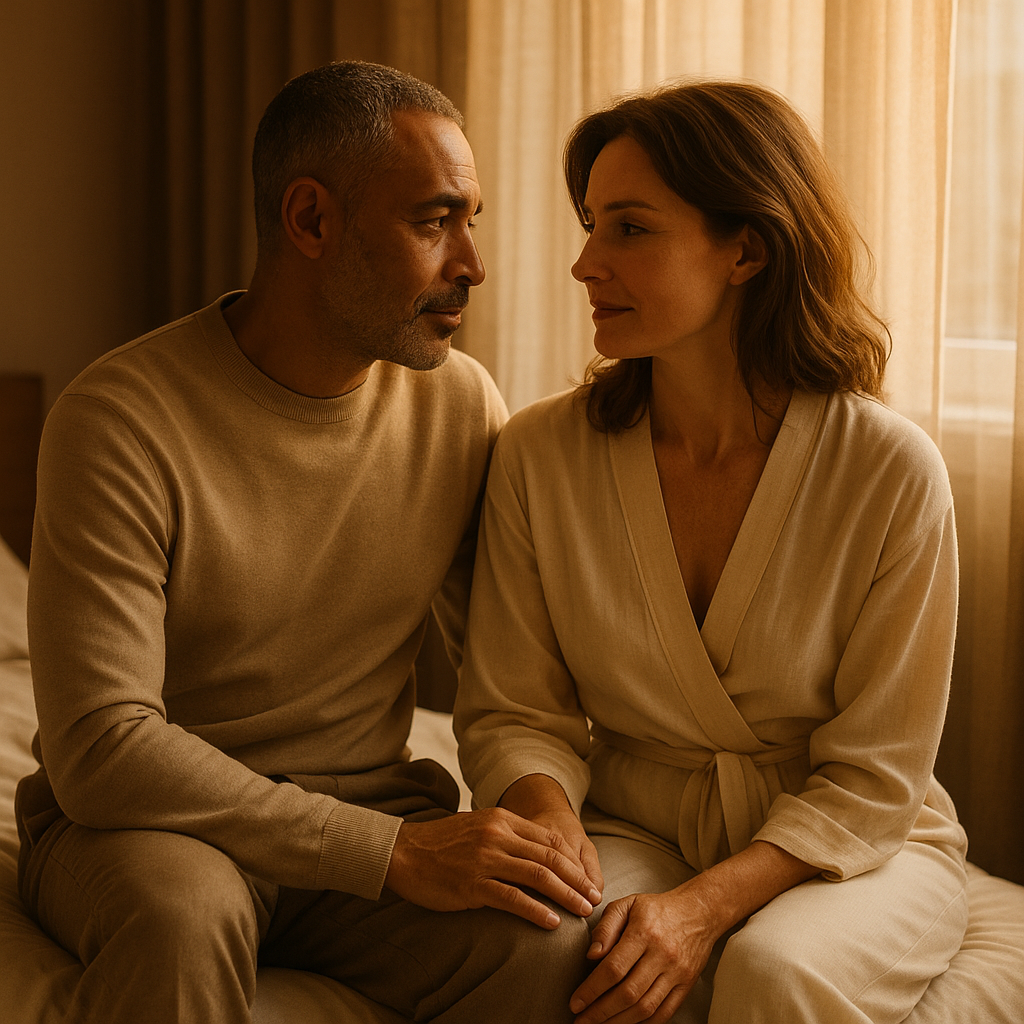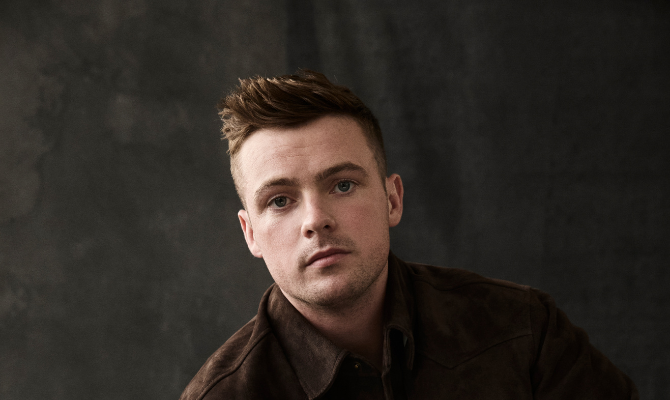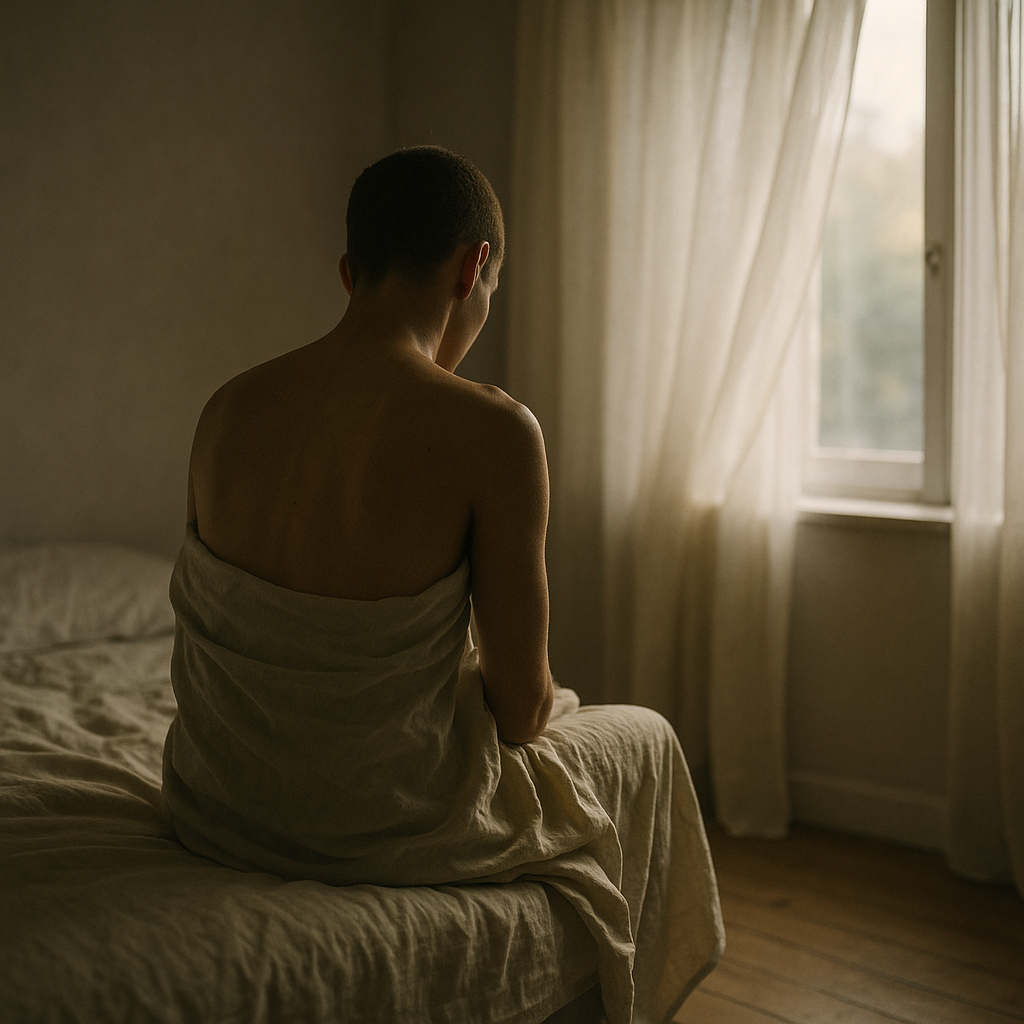Interview
Sofia Deus
Cherrelle Skeete is no stranger to powerful storytelling, but stepping into the role of Darlene in Alterations at the National Theatre has marked a profound chapter in her career. Drawing from her own family’s Windrush roots, Skeete brings raw authenticity and emotional depth to Michael Abbensetts’ seminal play—now revived with new material under Lynette Linton’s direction. In this exclusive interview, Skeete reflects on honouring the bravery of Caribbean pioneers, reshaping British theatre through representation, and why plays like Alterations are more urgent than ever. From co-founding Blacktress UK to launching HMU Equality Now, Cherrelle Skeete continues to shape the industry from within—one powerful performance at a time.

1. Michael Abbensetts’ Alterations is a landmark play exploring the experiences of the Windrush generation. What has it been like stepping into this story, and how does it resonate with you personally and professionally?
It has been an opportunity to recognise and revisit the story’s of some of my family members taking the leap to answer the call of England. Looking at this time period and understanding the challenges my parents and grandparents were up against when leaving the carribean to make a life in England. The bravery,sacrifice and grit determination they had to see their vision through with disappointment surrounding them and their day to day safety a threat. They are pioneers.
I am so proud to be performing a play taken from NT’ Black Plays Archive,to revive this play with Trish Cooke writing additional material and under Lynette’s Leadership. We have crafted a fleshed out Darlene who is layered and complex,she is speaking words many young women from that period were not able to utter. I hope that all that watch can see the huge contributions carribean people have made to British culture.
2. You’re working with the incredible Lynette Linton as director and sharing the stage with Arinzé Kene. How has this collaboration influenced your performance, and what has been the most exciting part of bringing this play to life at the National Theatre?
Being able to work with people whose work you admire is goals. I was in Lynette’s first season at the Bush Theatre in Temi Wilkey’s High Table so it feels so aligned I’m collaborating with her in now in this chapter of her career. I was blown away watching Arinzé in Misty and I knew from then I’d love to work with him. I trust the Timing would be right and here we are.What has been the most exciting part? That’s hard. Everyday has been amazing.It’s all about the work and making the daily discoveries about the characters. Hearing our music for the first time by XANA and seeing our set, costumes and fabulous wigs was incredible. Everyone dressed so sexy in the 70’s, people’s unique style really shone through and Frankie’s design reflects that. Seeing our company in costume for the first time was so satisfying,Everyone transformed. Shout out to our incredible creative team!
3.Given that Alterations was first staged in the 1970s, what do you think makes this story particularly urgent or relevant today?
The National Front was the forth biggest party in the UK in 1977. We learnt in the height of the pandemic a large number of key workers were those from the global majority.They were the ones risking their lives and families lives to keep us safe during such uncertain times. Let us never take for granted the value immigration has given to our England. The music we enjoy has evolved from pain and celebration. When I think of the Courtney character in our play who speaks about the challenges of the youth in England in the 1970’s I know this could just as easily be the thoughts of a young person in 2025.
As for women like Darlene? The law changed in 1975 permitting them to have their own bank account for the first time.The Sex Discrimination Act 1975 outlawed sex discrimination and discrimination based on marital status in the UK. Just sit with that. Before then, she could only exist through the possession of her father or her husband. She didn’t belong to herself. Women like Darlene fought for their children’s education and fair treatment whilst teaching their children how to defend themselves against racism. They fought for; equal pay at work and to be seen and respected as an equal within their marriage. The layers of racism and mysognynoir are exhausting. These women; the pillars of our communities deserve to be seen and remembered. By playing Darlene I want them to know their dreams were not in vain. We reflect on the past so we don’t repeat our short comings. Celebrating how far we have come whilst building bridges, in hope that no one gets left behind.
4. As a co-founder of Blacktress UK, you’ve been a strong advocate for Black women in the performing arts. How do you see the industry evolving in terms of representation, and what still needs to change?
Representation infront of the camera or onstage is not the final step. We need our youth exposed to the performing arts as a career option from as early as primary school, not just as a performer but especially the technical aspects of performance like lighting, sound and stage management but also stunts and stage combat. It is becoming harder for working class youth to enter the industry.
From within, performers are speaking more about the need for Hair and makeup provisions being accessible for all actors. Global majority actors have been suffering in silence for so long. Performers have been impacted emotionally, psychologically, financially and professionally. As an industry it is everyone’s responsibility to solve this.
I am the co-founder of HMU Equality Now(Hair and Makeup Equality Now)alongside Ann Ogbomo. This is a campaign that is performer lead that advocates for change. I am proud to say one of our supporters is Times Up UK. We have been working with and speaking to a variety of stakeholders including actors, hair and makeup artists, heads of departments , producers, commissioners, and of course Equity (the performing arts and entertainment trade union ).
We have created safe spaces for performers to speak up from a well informed position. We believe this is a solvable issue of inequality and there will be a day where performers can focus solely on the job they have been hired to do.
5. You’ve played such a variety of roles on stage, from beloved cultural phenomena to deeply political pieces. How do you choose your projects, and what excites you most about a script?
The script, the people involved and also being valued through pay can make me instantly say yes. A big challenge for actors who leave their home towns to live in London is weither they will be able to afford to stay in London. If you’re working class you may also be supporting extended family with your wages… Thats real. I’m excited by complex characters. Being it based on the time period or a place I may l have a personal connection with.
6. In addition to acting, you’re also a cultural writer and director. How do these different creative outlets inform each other, and do you feel they give you a deeper agency over the stories being told?
Whether it’s through acting, writing, or directing, is all deeply interconnected. Each creative outlet gives me a different lens to approach a story. As an actor, I’m interpreting someone else’s vision, bringing a character to life, and adding my personal touch to their narrative. But as a writer, I’m the one creating those characters, building their worlds, and giving them voices. Directing adds another layer of agency because now I’m guiding others to bring those stories to life, shaping the tone, the pace, the visual world that the story exists in.
Having a hand in all these aspects of storytelling has definitely given me a deeper sense of ownership and a greater understanding of the craft.. It’s a much fuller, more holistic approach to creativity, and I feel it makes my voice stronger in the storytelling world.
7. You’ve built an impressive career across theatre, film (Magpie, Inheritance), and television (Hanna). How do you navigate the differences between these mediums, and do you have a preference?
Regardless of the medium as an actor I start with the same questions, this helps me understand who the person is I’m playing and the world they inhabit. Reading the script to understand the relationships with other characters, that’s all the same. The rest is technical. Vocal prep is needed to be able to be heard in a space like the Lyttleton theatre along with feeling confident and fully embodying a language that isn’t my own but also being heard clearly.
TV and film is about understanding the shot and the pacing is so important, the camera has its own dance, they are like another scene partner. I observe a lot when I’m on set because I think you can learn from asking questions but more from immersion.
Theatre is always going to be home as it’s where I learn my craft and there is no where to hide, you learn so much about yourself during the rehearsal process. With the right people it can be freeing.
I love TV and Film as it’s collaborating with another set of skilled creatives. I’m always amazed when I get to see parts of the edit and this is where you see all the departments work come alive.
8. With Alterations opening as the National Theatre’s biggest-ever staging, what do you hope audiences take away from this production? And looking ahead, is there a dream project or story you’d love to tell next?
I hope more people are curious about the Black Plays Archive, a younger generation of actors and theatre makers who want to revive plays. We have so many of the same plays that are getting revived over and over again. It’s important black experiences and stories are told and accessed for future generations, we all need to learn from our past to continue to strive for an equitable future.
I’ve enjoyed looking into the history of Black British women who have made an impact in their communities whose stories haven’t been told or wider society have never heard their names before. Yvonne Conolly who was the first Black woman head teacher in the UK in the 60’s.Olive Morris who was an activist fighting for social housing in the 70’s, Mavis Best who lead a successful campaign to overturn the so-called Sus law .There are incredible trail blazer women who changed the way we live today in UK and we have to remember their names. I would be honoured to play any of them.
I’m ready to play more physical characters too, ive taken on boxing this past year and women’s boxing is in a real growth period right now I’ve loved seeing Shannon Ryan’s journey who is a patron of our boxing club would love to shed more light on women in sport for sure.
Images Credits: David Reiss




